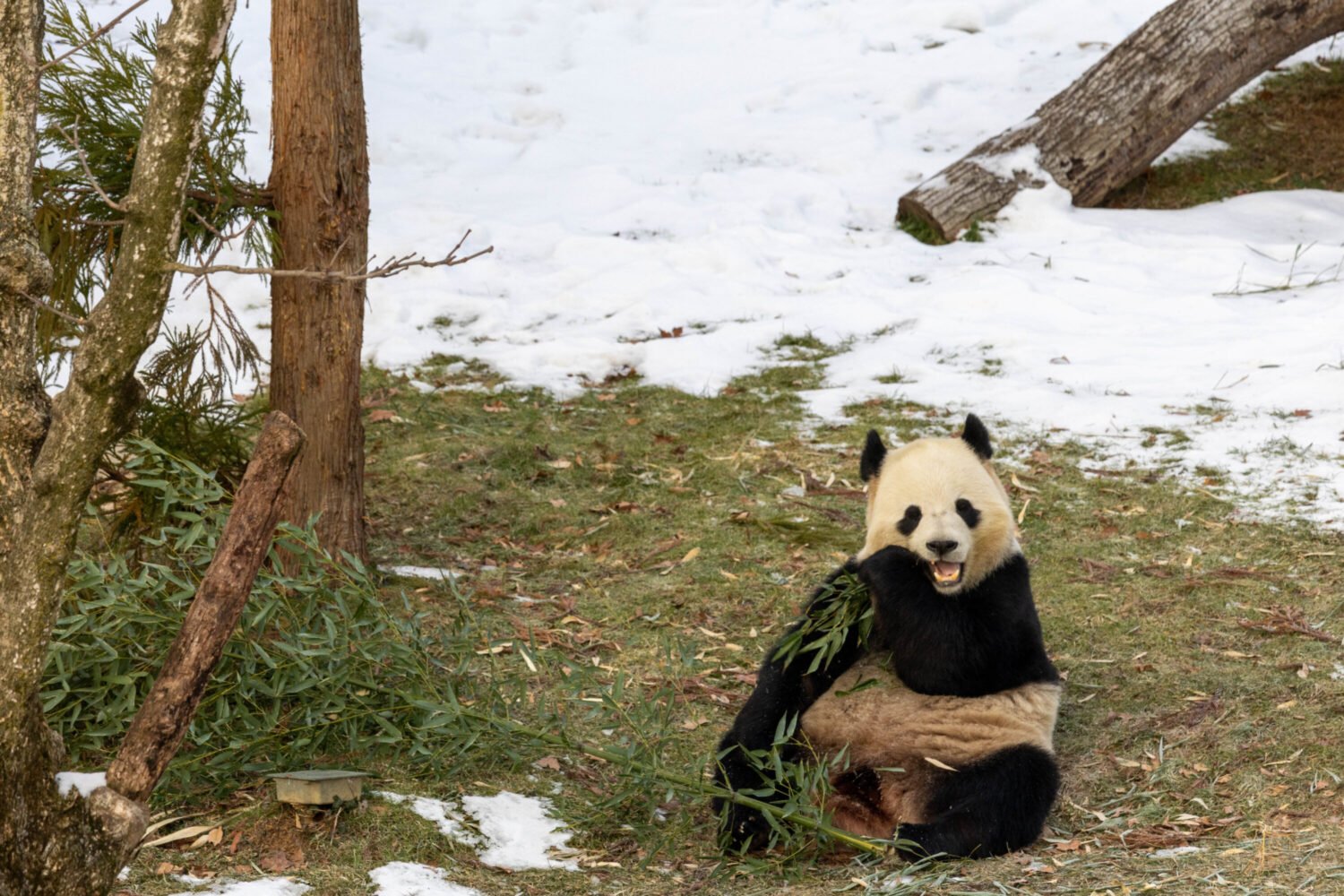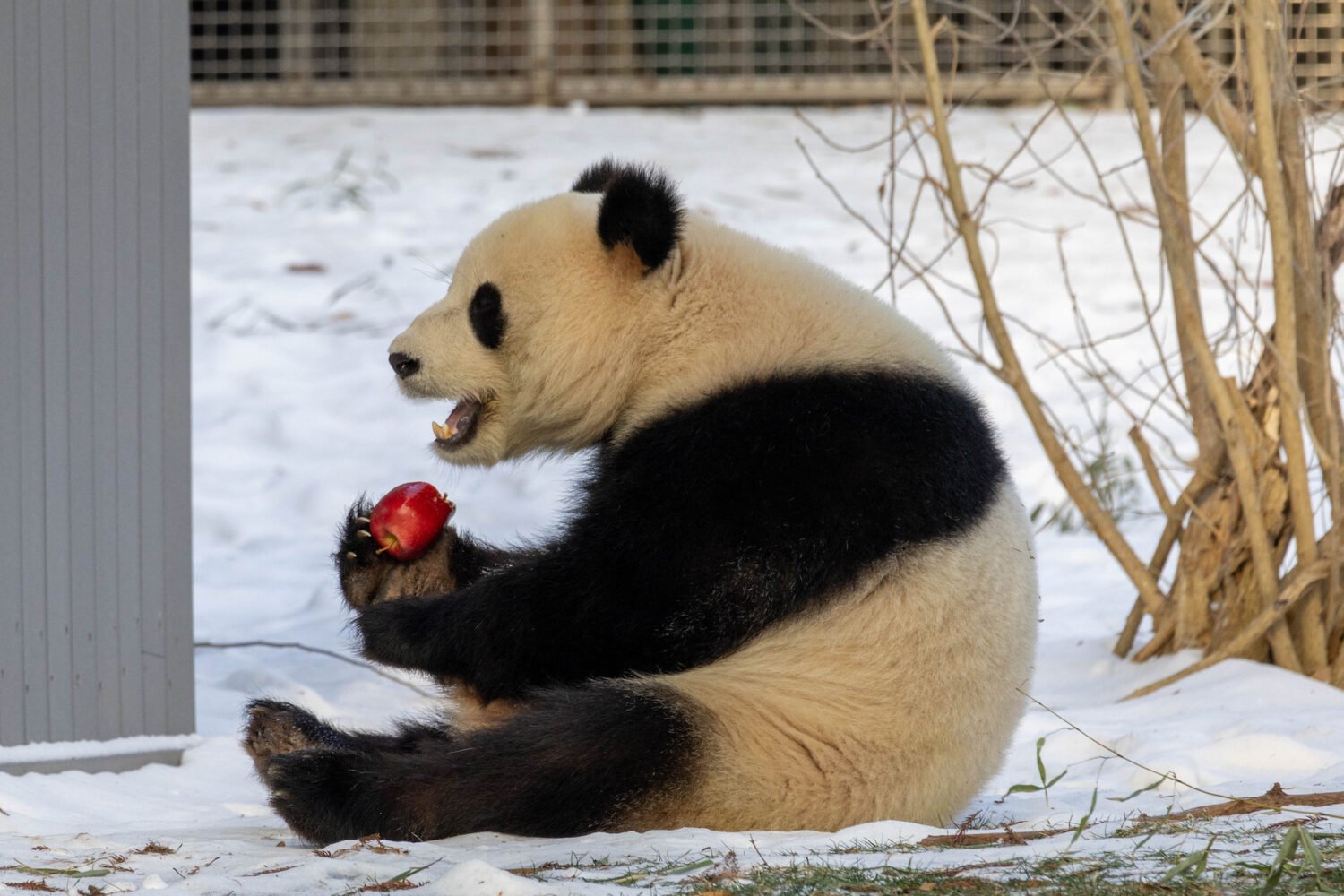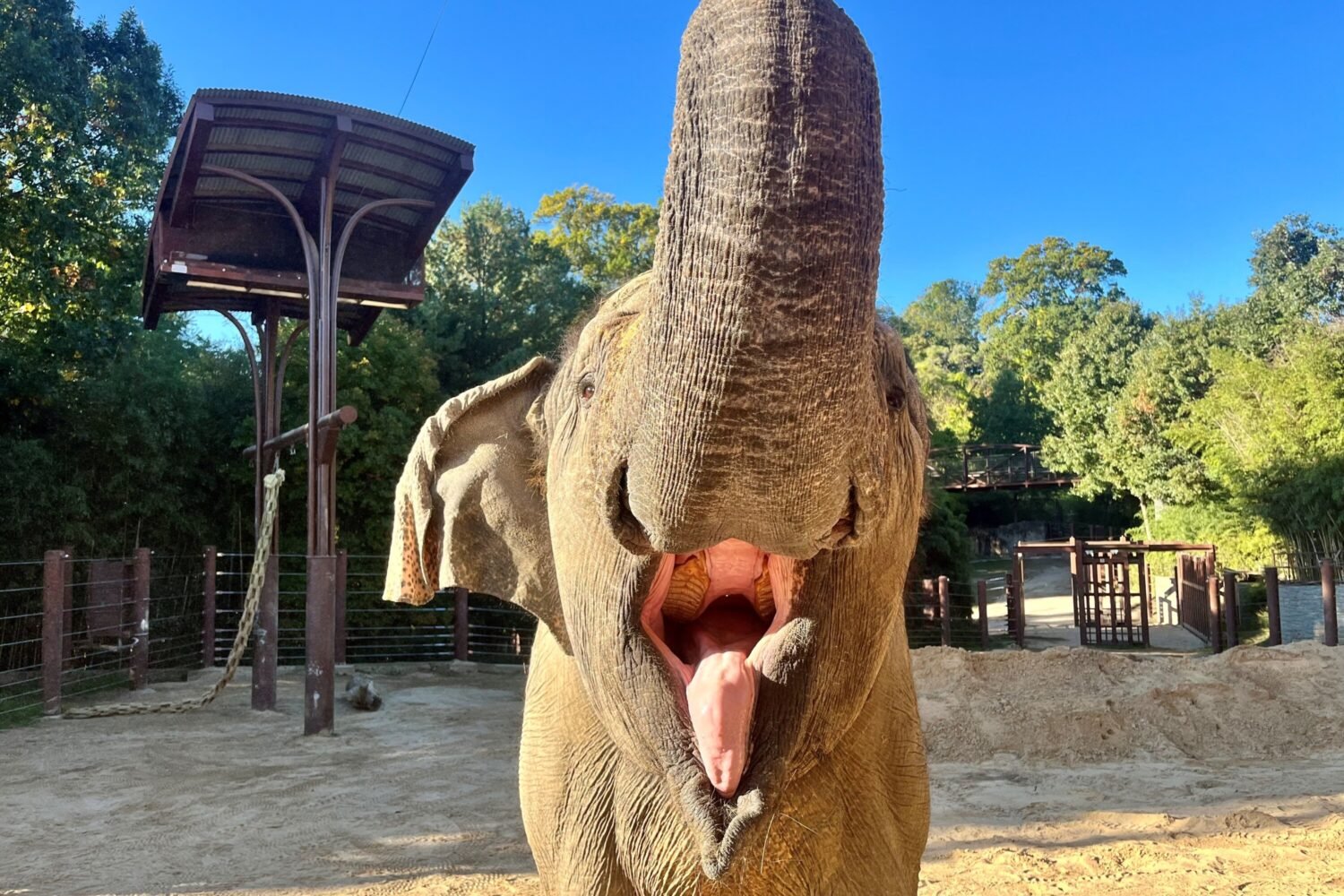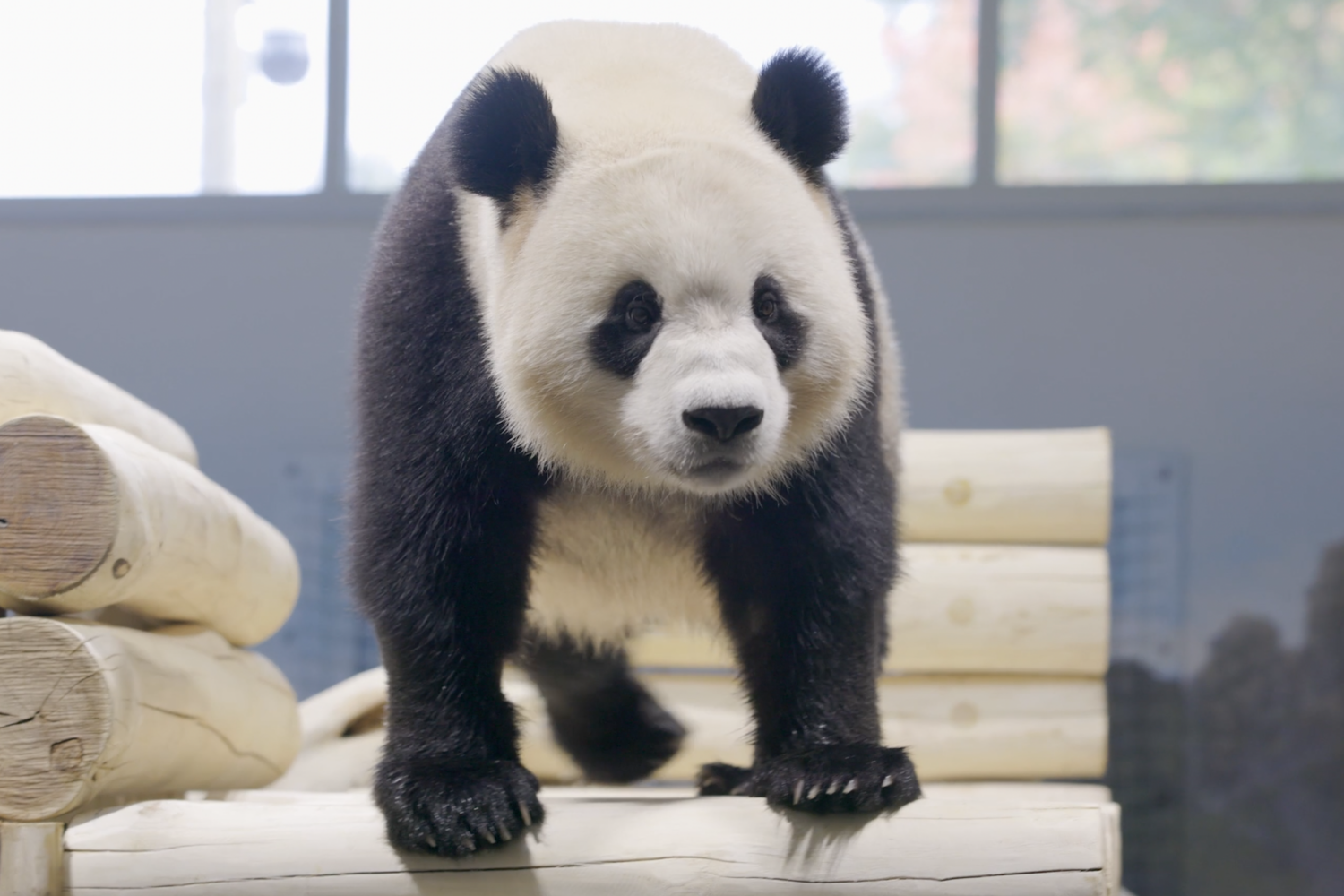More than 50 years after the first pair of giant pandas arrived at the National Zoo, Washington’s beloved furry creatures are heading back to China. According to the Washington Post, the three pandas currently living at the zoo will clear out by November 15, less than a month before the loan arrangement between China and the Smithsonian expires. There is currently no deal to replace the departing pandas with new bears.
During their many years in Washington, the pandas weren’t just tourist attractions: They were also instruments of the Chinese government’s efforts to garner goodwill with key foreign nations in a practice that would come to be known as “panda diplomacy.”
To better understand the geopolitical implications of the National Zoo’s empty panda enclosure, we spoke to Elena Songster, a professor at Saint Mary’s College of California and the author of Panda Nation: The Construction and Conservation of China’s Modern Icon.
When China first provided the pandas to DC in the early 1970s, what was its motivation?
Nixon’s visit to China [in 1972] was a very, very high profile visit, and a very public expression of these two countries—which had been former enemy states—having warming relations. There’s lots of lore associated with [the visit], in terms of Chinese officials observing Mrs. Nixon smiling and laughing as she was looking at the pandas in the zoo in Beijing, and [Chinese officials] saying, “Oh, we should offer them this pair.” There were pandas in the United States at that time; they had been brought to the United States and England by trappers. And they were really popular zoo exhibits. So the [Chinese] government knew that the American people like pandas. And so it seemed like this was a really good way to offer a grand gesture of friendship.
So those original pandas were provided to the United States as gifts—or free of charge. When do the terms of these arrangements begin to change?
In 1983, there was a panda starvation scare in China because there was a huge bamboo die-off. The fact of the matter is that pandas didn’t starve. They switched to a different species of bamboo. But there was a ton of concern and alarms raised. And so [Chinese officials] decided that it was good for China’s relations to send pandas abroad, but instead of giving them away—because they didn’t know how many they had in the wild—they would put them out on loan. They were short-term loans, they were three-month loans, and the first one went to Los Angeles in 1984, in association with the Olympics.
So the loan policy begins then?
It starts then. And then the pandas are basically going on tour. Because they accompanied the Olympics [in Los Angeles], they were going to accompany the Winter Olympics in Calgary, and then they’re going to accompany Columbus Day celebrations in Ohio, things like that. These loans came under criticism by people who are animal experts, because it was putting a lot of stress on the individual [pandas].
And were these Chinese critics or Western critics?
Western [and] Americans, mostly initially. [The naturalist] George B. Schaller has a whole chapter on this in his book, The Last Panda, called “Rent-a-Panda.” He and other people in the American Zoological Association called on the US to stop these types of loans. And they’ve participated in kind of helping to design the new loan [arrangement], which is a long-term scientific exchange loan. So if you have a pair of pandas for 10 years, the likelihood that they could reproduce is much higher. And then it includes a scientific exchange, so you’re actually studying the pandas and captive breeding, and [the scientists would] actually would travel back and forth. The first was in San Diego in 1996.
The fee is expensive, right? It was partly set at that high price to prevent host institutions from profiting off of the pandas, because [doing so] was opposed by the Convention on International Trade in Endangered Species of Wild Fauna and Flora. The money went to China, where it was designated to benefit the wild [panda] population.
Why wasn’t the Chinese Panda rental agreement with the Smithsonian renewed?
So I have to say, disappointingly, I don’t know why. But that being said, I do think that it’s part of a larger plan. The agreement with San Diego came to an end in 2019. It seemed like an isolated case at that time. I didn’t predict that all of the loan agreements would come to a close within five years. But because they have, I think that they’re related. All of these agreements were made prior to Xi Jinping coming into office. The truth of the matter is, these parents are all old…they probably should be returned to China. And I know that China doesn’t want all of its senior pandas dying across the globe. But the fact that they’re not being exchanged for younger pandas and that the United States is going to be pandaless, I do think that that’s significant.
What does that say about the state of US-China relations?
I think it might say more about the way China sees its position in the world. On the one hand, these loans were set up in a very cooperative way. But China is the one who can make the final call. Because of course, we would want to extend the loans, right? We would do everything we could. Probably there are some places, like San Diego and the National Zoo, who would happily pay double the price or something if that’s what it was about. But what it demonstrates is that China is in a position of power in these relationships. So I feel that it reflects China’s position geopolitically, in a broader sense, which is vastly different from 1972. I think that it does reflect the change in China’s position in the world.
The conversation has been edited for space and clarity. Correction: This article originally misquoted Songster as saying all the pandas in the United States are old.


![Luke 008[2]-1 - Washingtonian](https://www.washingtonian.com/wp-content/uploads/2017/10/Luke-0082-1-e1509126354184.jpg)

















